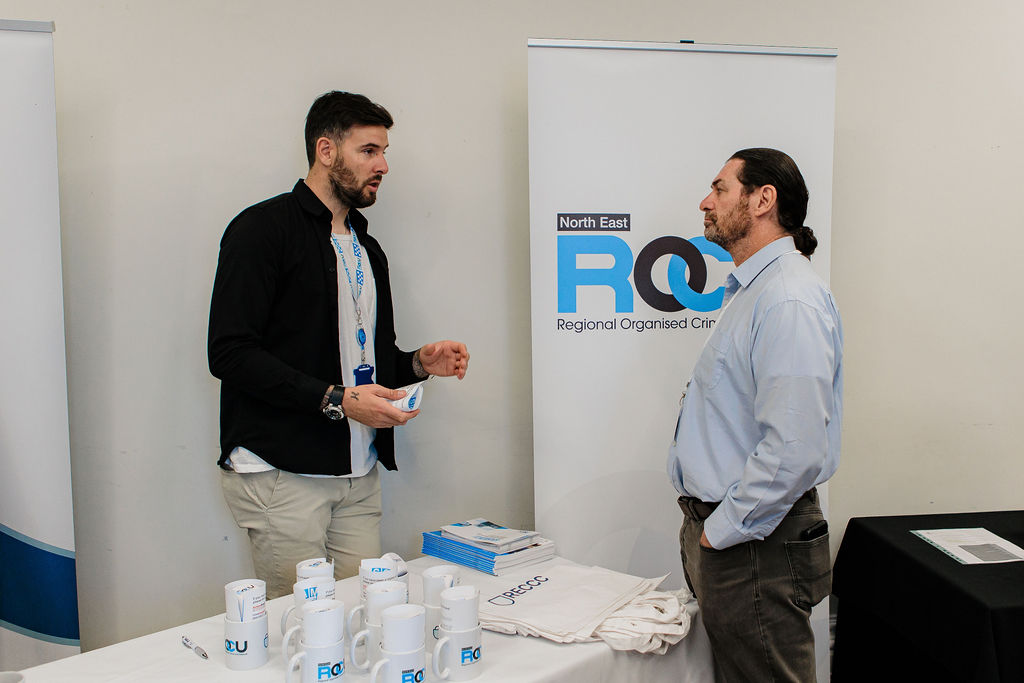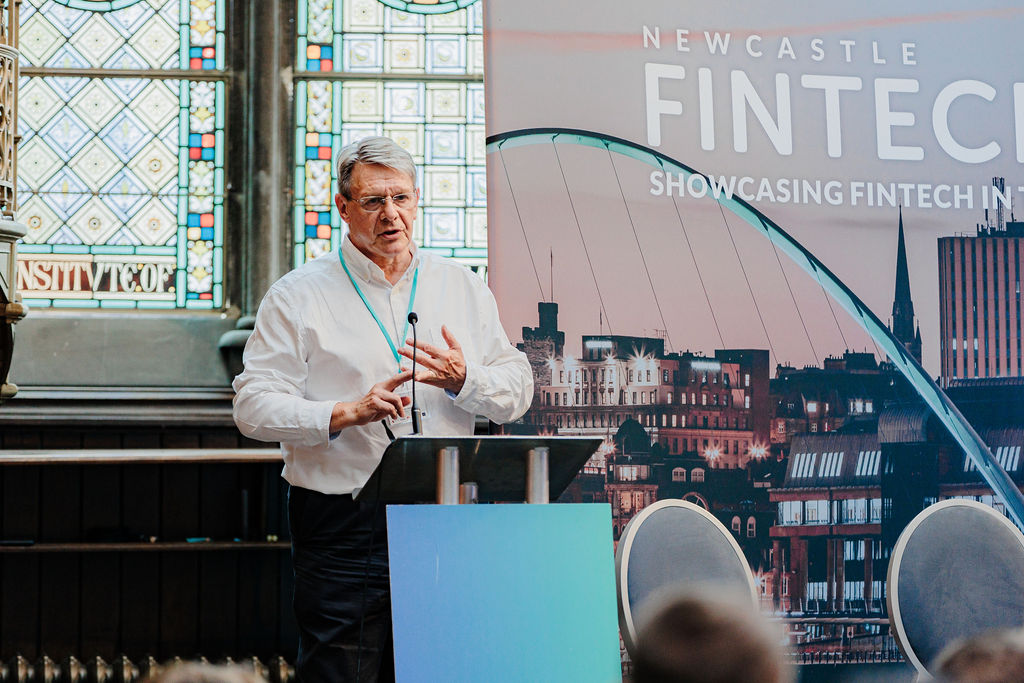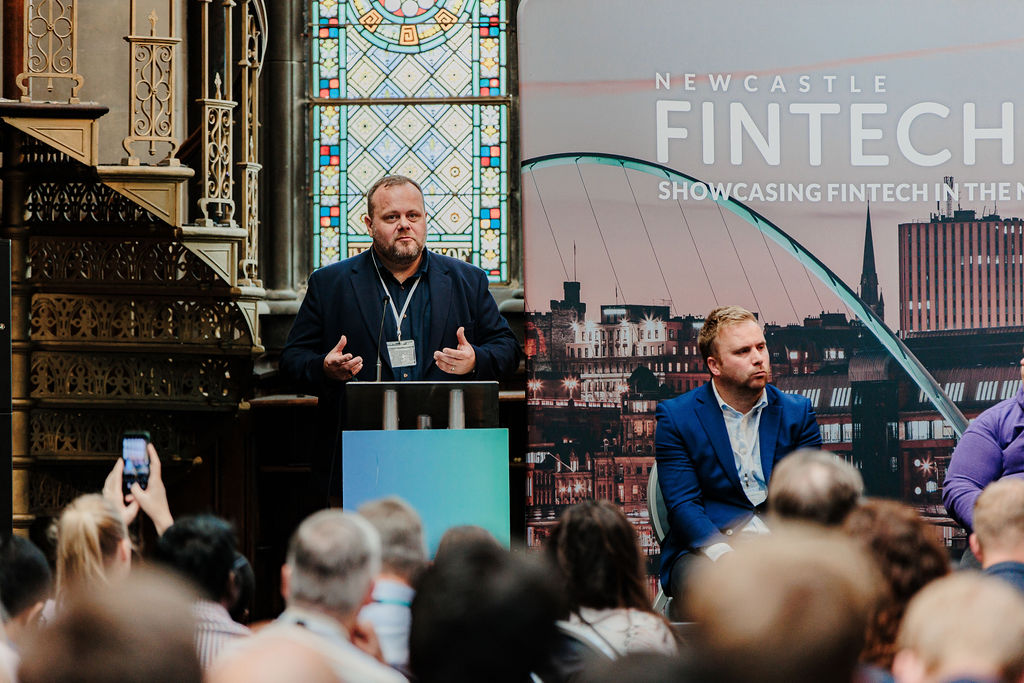York FinTech Forum Write-up
On Wednesday 16th July, the Northern FinTech community gathered for the York FinTech Forum, delivered in partnership with Aviva at their central York headquarters. The half-day event brought together nearly 70 engaged delegates for an interactive session exploring WealthTech, adviser technology, and collaborative innovation, rounded off with vibrant networking on Aviva’s city-view terrace.
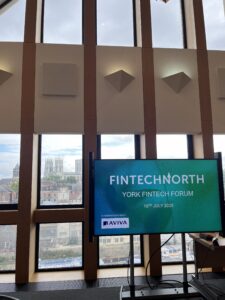
Joe Roche, General Manager at FinTech North, opened the event with a welcome address. He provided an overview of FinTech North’s mission and the regional FinTech ecosystem, referencing Whitecap Consulting’s upcoming pan-Northern FinTech report. Joe also spotlighted the forthcoming Northern FinTech Summit in October, where Aviva will once again play a key role.
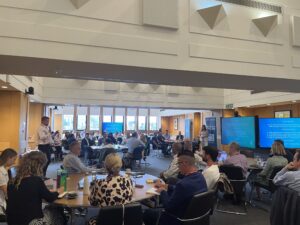
Suzanne Lawson, Partnerships Lead – Group Innovation at Aviva, followed with an introduction to Aviva’s longstanding presence in York and their extensive support for innovation through venture capital, partnerships, and investment. She underlined the organisation’s strategic focus on nurturing local FinTechs to foster meaningful growth and transformation.
Next, Sam Nixon (Director of Consumer Propositions) and Craig Lutkin (Senior Propositions Manager) from Aviva shared insights into the current landscape of WealthTech, discussing opportunities and challenges from both client and corporate perspectives. Their presentation included a case study examining tax changes and ISAs, and addressed themes such as strategic partnerships, scaling, user experience, and financial education.
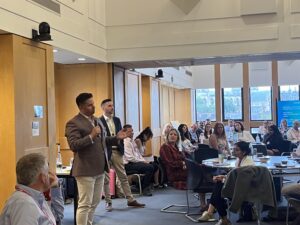
The event then moved into a forward-thinking panel discussion exploring the evolution of WealthTech. Expert panellists included:
-Suz Ferreira, Founder of Proper Financial Coaching
-Macs Dickinson, Director of Engineering at LHV Bank
-Paola Cuneo, Lead Entrepreneurial Engagement at Rathbones
-Charlotte Davey, Director of Strategy and Propositions at Succession Wealth
-And was moderated by Matt Ferguson, Managing Partner at Sønr
Each panellist provided insight into their organisation’s role across banking, traditional finance, financial advice, wealth management, and market analysis.
Paola set the scene with a market overview, stating that WealthTech has transitioned from disruptor to essential driver, highlighting that 60% of clients now expect professionals to integrate AI and digital tools. The panel discussed the critical role of regulation in protecting end users, the necessity for greater market transparency, and impending pension legislation.
Macs emphasised that “in 2025, every company is a tech company”, noting the shift in consumer expectations and increased digital fluency among younger generations. He acknowledged the ongoing advice gap, stressing that while technology can bridge accessibility, human insight must remain central.
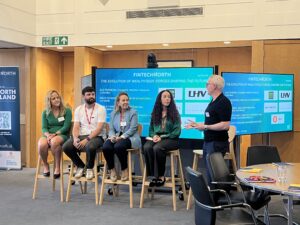
Charlotte explored the intersection of technology, human engagement, and financial inclusion, touching on themes such as Open Banking, women’s wealth and accessibility. She pointed out that working in financial services doesn’t inherently equate to financial literacy, and encouraged openness to learning – something mirrored in changing consumer behaviour. She also noted the rise in female-led digital investment activity.
Suz highlighted the knowledge gap as a precursor to the advice gap, reinforcing the need for foundational financial education before individuals can fully benefit from regulated advice.
Further discussion covered how the sector is adapting to the current status quo. Charlotte observed that banks are increasingly entering the wealth management space. There was a strong focus on the link between financial wellbeing and overall mental health, underscoring the importance of cooperation across banks, educators, the regulator, and the wealth sector to improve consumer support.
Macs addressed the dual nature of technology, describing it as both empowering and vulnerable to exploitation. “We need to up our game in fraud detection,” he warned, highlighting the pace at which fraudsters are innovating.
Suz revisited the theme of education, posing a key question: how much financial knowledge should individuals have before seeking professional advice?
Key themes discussed throughout the panel included the distinction between education and advice, trust and regulation, the personalisation of financial solutions, and the increasing complexity of individual financial needs.
In closing, the panel offered predictions for the future:
Charlotte suggested that segmentation must evolve to reflect life stages and individual financial journeys. Macs foresaw a major security breach driven by AI, which he believes will trigger essential industry-wide learning. Paola predicted the continued expansion and integration of digital tools in wealth management. Suz anticipated growing support for women’s wealth and steps towards closing the gender wealth gap.
After a short break, the afternoon continued with a showcase of innovative Northern businesses presenting their FinTech propositions:
-Manasi Kulkarni, Founder of Conveyd – a tech‑focused conveyancing startup transforming the homebuying process with faster, transparent, and AI‑driven legal services.
-Julian Graham-Rack, CEO of PrinSIX – who spoke on how the organisation improves business performance in investment and wealth management by removing friction.
-Andy Nicol, Head of Client Strategy & Managing Director at Sputnik Digital, who shared insight into some of the organisation’s most innovative digital propositions driven by AI including Hollr, Invntry, as well as a concept wealth advisor dashboard allowing “agent in the loop”, as well as “what’s hot” in the fintech space such as Peppercorn AI’s “Pipr” platform.
-Elliot Riley-Walsh, Founder & CEO of ValArt – a collector‑centric platform that uses tech to catalogue, value, authenticate and transfer physical and digital collectibles.
-Vipashyana Srivastava & Ashish Sandhu, Founders of Scholar Saver, who co-created an AI‑powered personal finance platform tailored for students that helps them manage money, build savings, and avoid dropouts while also partnering with universities to support student retention and improve institutional financial resilience.
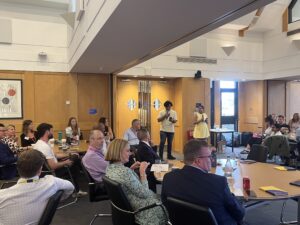
Matt Ferguson returned to round off the session with an engaging recap of the day’s discussions and a look ahead at what lies in store for the sector.
The event concluded with an informal lunch, providing delegates with the opportunity to continue conversations, reflect on the insights shared, and strengthen new connections.
A sincere thank you to our speakers, attendees, and our partners at Aviva for helping make the York FinTech Forum a successful platform for collaboration and knowledge sharing across the Northern FinTech ecosystem.
For more information and opportunities for collaboration, please reach out to us at info@fintechnorth.uk.
